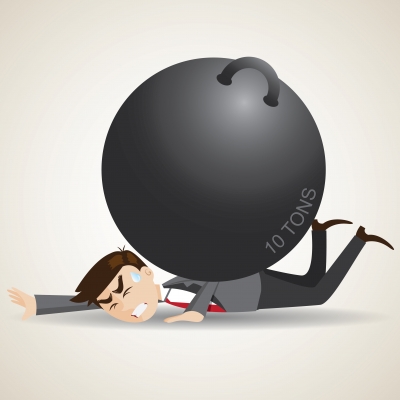Too Much Responsibility and Stress
Too Much Responsibility and Stress

Image courtesy of iosphere at FreeDigitalPhotos.net
Many of us tend to think that responsibility is a good thing. But, when we take too much responsibility we immediately step into a high-stress zone. Sometimes, consequences of stress and over-responsibility can come in the form of anxiety, depression, burnout, etc. To avoid such outcomes, we need to look closer at responsibility and decide when it is too much. According to psychologists, people who have a strong underlying sense of guilt, and low self-worth usually take on more responsibilities than other people. This problem can appear as a result of poor skills when a person tries to prove herself by taking too many tasks that overcome her capacity. However, in family settings, women tend to take more responsibility than men. They usually copy what their mothers did, without too much thinking. Such automatic behavior point at hidden patterns that makes us feel trapped in a certain role. To get out of that place, we need to understand that we always have a choice. In business settings, we can take too much responsibility from fear. But the price we pay can overcome expected results. If we fail to estimate what we can do and in what time, we can expose ourselves to dangerous consequences. Keeping our boundaries clear and learning to say ‘no’ can be extremely useful in stress prevention. To find out more about too much responsibility and stress, the article “Burnout Prevention and Recovery” gives us interesting ideas on how to cope with stress.
Too Much Responsibility and Stress
Whether you have a job that leaves you rushed off your feet or one that is monotonous and unfulfilling, the most effective way to combat job burnout is to quit and find a job you love instead. Of course, for many of us changing jobs or careers is far from being a practical solution—we’re grateful just to have work to pay the bills. Whatever your situation, though, there are still things you can do to improve your state of mind.
Try to find some value in what you do. Even in some mundane jobs, you can often focus on how what you do helps others, for example, or provides a much needed product or service. Focus on aspects of the job that you do enjoy—even if it’s just chatting with your coworkers at lunch. Changing your attitude towards your job can help you regain a sense of purpose and control.
Find balance in your life. If you hate your job, look for meaning and satisfaction elsewhere in your life: in your family, friends, or hobbies. Focus on the parts of your life that bring you joy.
Make friends at work. Having strong ties in the workplace can help reduce monotony and counter the effects of burnout. Having friends to chat and joke with during the day can help relieve stress from an unfulfilling or demanding job, improve your job performance, or simply get you through a rough day.
Take time off. If burnout seems inevitable, try to take a complete break from work. Go on vacation, use up your sick days, ask for a temporary leave-of-absence—anything to remove yourself from the situation. Use the time away to recharge your batteries and pursue other burnout recovery steps.
Additionally, some of the signs that we are overwhelmed with the workload and under stress are the feelings of helplessness and hopelessness. The real antidote to that state is the feeling of inner power. If we want to become resilient to stress, a reasonable strategy can help us gradually develop more confidence and a true sense of our capabilities. Responsibility gives us a sense of power, but too much responsibility leaves us completely exhausted.


